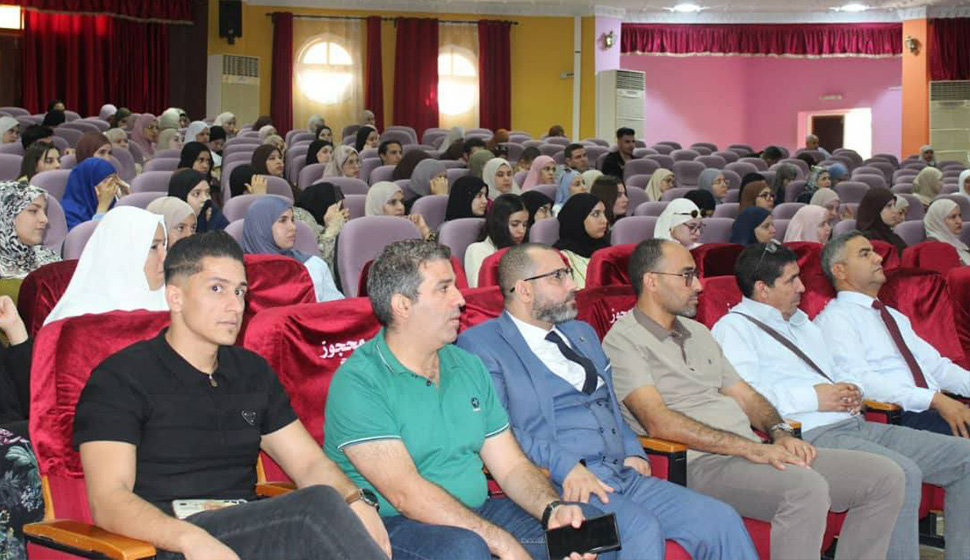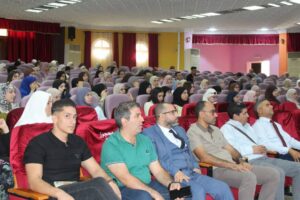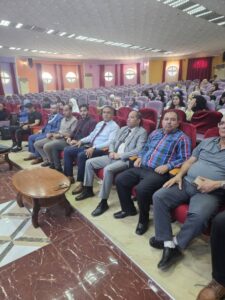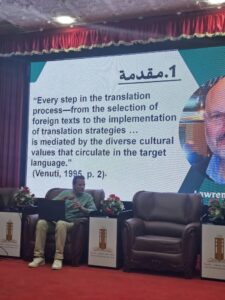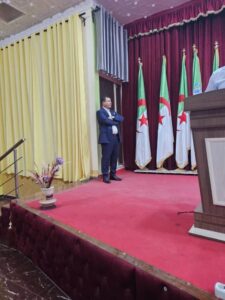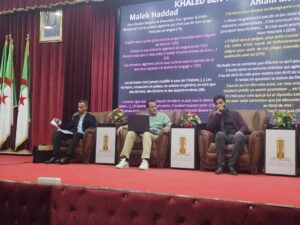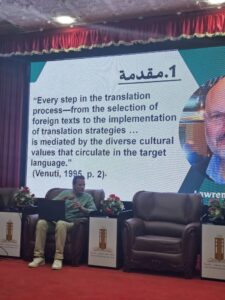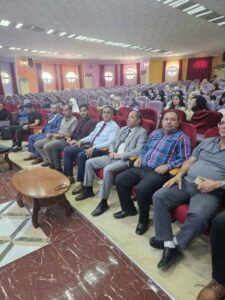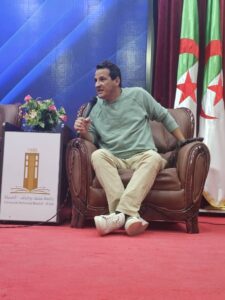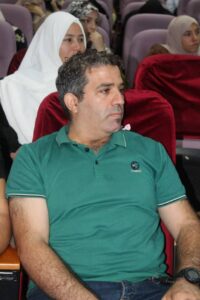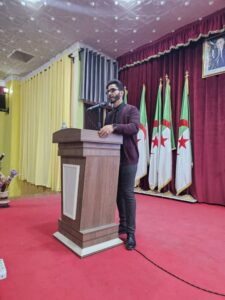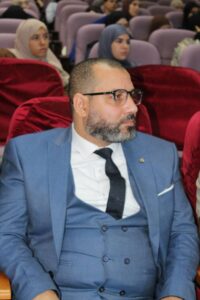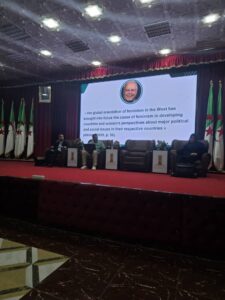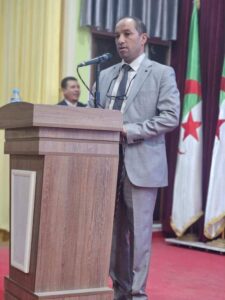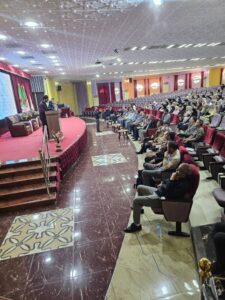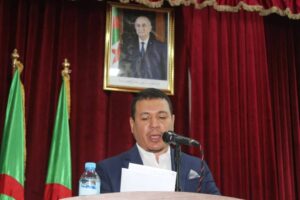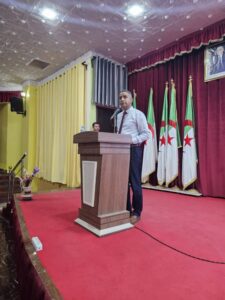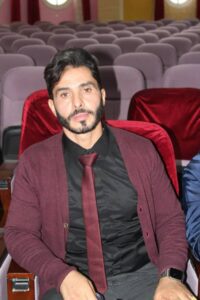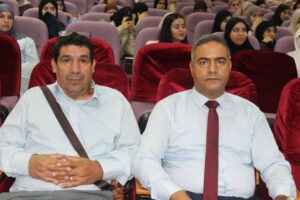On Monday, October 6, 2025, the Faculty of Letters and Languages at Mohamed BOUDIAF University in M’sila hosted the first national conference of its kind entitled: Literary Translation: Openness to the Other and the Deconstruction of Stereotypes: Ideological and cultural influences”
The event was organized by the Department of Translation under the auspices of the Laboratory for Theoretical and Applied Linguistic Studies, with the participation of a distinguished group of professors and researchers from various Algerian universities, both in person and via videoconference.
The opening session featured an address by the conference chair, Dr. Mounir KHEDAR, who welcomed the participants and attendees, highlighting the importance of this scholarly gathering as a platform for academic dialogue on literary translation and its role in building bridges of communication between cultures while dismantling stereotypes surrounding representations of the self and the other.
He further emphasized that organizing this conference represents a qualitative step forward in advancing research in translation studies within the Algerian academic context.
This was followed by a speech by the Dean of the Faculty of Letters and Languages, Professor Lakhdar HENNI , who commended the Translation Department for its efforts in organizing this distinguished academic event.
He underscored the faculty’s continued support for all research initiatives that contribute to the development of linguistic and translation studies, reaffirming that translation constitutes a fundamental pillar of intercultural dialogue and openness to the world.
Next, the Vice-Rector for Planning and Foresight, Professor Amine AYED, expressed his pride in the University of M’sila hosting this pioneering national conference.
He praised the high level of organization and the quality of scholarly contributions, affirming the university leadership’s commitment to supporting such academic events that reflect the vitality and dynamism of scientific research.
He concluded his remarks by officially announcing the opening of the conference’s proceedings.
This academic day provided a valuable intellectual space for the exchange of ideas and experiences.
Discussions addressed translation from multiple perspectives—academic, cultural, critical, and ideological—reflecting a growing awareness of translation’s role as a tool for reshaping cultural representations of the self and the other, rather than merely a means of linguistic transfer.
The audience composed of faculty members, administrators, and engaged students, attentively followed a series of insightful presentations and stimulating discussions that demonstrated a high level of critical awareness among the participating researchers.
These exchanges culminated in several important outcomes and recommendations, summarized as follows:
Main Recommendations of the Conference:
- Promoting academic research in the field of translation in line with the rapid transformations in thought, language, and communication, with particular emphasis on the interdisciplinary dimension of translation studies.
- Highlighting the cultural dimension of translation by situating it within its social, historical, and political contexts, thereby avoiding reductive or superficial approaches.
- Viewing translation as a bridge for intercultural dialogue and as a means of fostering mutual understanding between peoples, promoting plurality, and challenging prevailing cultural stereotypes.
- Encouraging critical awareness among translators and publishers to help them uncover the ideological motives underlying text selection and avoid reproducing patterns of cultural hegemony or dependency.
- Promoting the translation of texts that reflect the diversity of Arab societies and offer alternative perspectives that are authentic and emancipated from external representations, without conforming to Western audience expectations.
- Rejecting the reduction of translation to a purely commercial or consumerist activity, and restoring its genuine status as an epistemic and cultural act that lays the foundation for equitable intercultural relations.
- Calling for effective institutional support from universities and cultural organizations for translation projects that articulate an internal Arab vision of the world and break away from externally imposed agendas.
8.Recognizing that translation is not neutral, but rather a culturally and ideologically charged act imbued with perspectives and assumptions—thus requiring ongoing reflection on the ideas transmitted and the identities constructed through translation.
The conference concluded in a distinguished academic atmosphere characterized by a spirit of dialogue and openness, reaffirming the vital role of translation in building bridges between cultures and in consolidating the values of communication and mutual respect.

